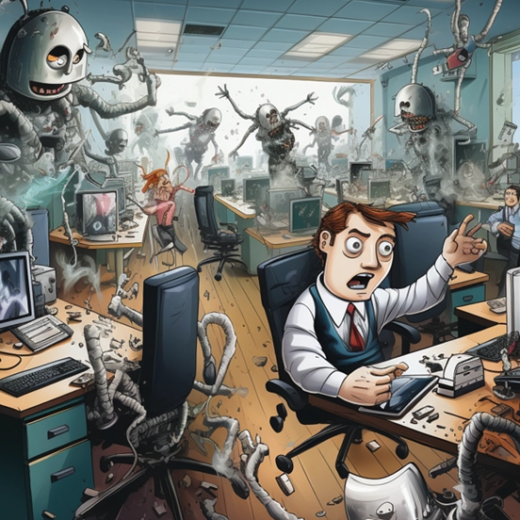
Leaders round table round-up: How will coronavirus change local government for good?
The recent Construction IT Leaders Round Table featured some lively debate around how coronavirus will change local government for good. Chaired by Susie Kemp, CEO of Swindon Borough Council, and featuring leaders from local authorities up and down the country, the virtual event covered off many of the big questions we’d raised in our article – Seven ways […]
The recent Construction IT Leaders Round Table featured some lively debate around how coronavirus will change local government for good.
Chaired by Susie Kemp, CEO of Swindon Borough Council, and featuring leaders from local authorities up and down the country, the virtual event covered off many of the big questions we’d raised in our article – Seven ways coronavirus could change local government for good.

The first topic of discussion was whether member or officer roles will change permanently.
Susie opened by asking whether people have been bothered about gold commands and officers assuming some of the authority that they would expect to rest with them.
James Winterbottom, Executive Director at Wigan responded by saying that, from his point of view, as the councils move into thinking about recovery and how we come out the other side better and stronger, it’s vital that the team, cabinet and SMT work together. “Political leadership and oversight will need to change, as will the look and feel of the organisation, so significant change is inevitable, and that includes member and officer roles,” he said.
Des Murray, CEO of North Lanarkshire added: “The challenge moving forward is avoiding a return to the status quo. Emerging and everchanging guidance is going to completely reformat the workplace, which applies equally to elected members, committees and so on. How far down the digital road organisations are will be the big differentiator. Those who were further on their journey will have a head start while those just starting the process will have a challenge in getting elected members engaged and able to adapt to the new ways of working.”
Conversation moved on to how the response to Covid-19 has driven the ability of authorities to just crack on, and how decisions have been made at pace in the best interest of communities. Panellists agreed that members have been really good in letting them get on with their work – as long as communication is effective. In Swindon, for example, the format of decision making was changed to ensure portfolio holders were consulted before taking some of the decisions. “As we move into recovery, that pace has slowed a little bit, which has allowed us to do this,” said Susie.
The transformation agenda
Conversation then moved onto transformation and the clear acceleration in pace. Susie outlined how, in Swindon, just like everywhere, they’ve achieved in eight or nine weeks a level of change that probably would have taken two years to do. The challenge our panellists see coming is hanging on to this speed of transformation and momentum that has been made.
“I think there’s certainly no excuse for any organisation to say no, we can’t do that – we’ve proved that we can move up a pace and I believe there’s still room for more,” commented Matt Prosser, CEO of Dorset Council. “We moved to become a virtual organisation in less than a week, with 2,500 colleagues working from home, even when we had to build hundreds of laptops. There is no excuse when you’ve got a single focus. In a crisis you can do anything that you put your mind to. For us, it’s about how we preserve that mindset when we leave the crisis and we move back into whatever the new normal is.
“For us, at the moment, we’re capturing stories, both successes and failures, to understand why, so that we can remind ourselves and use what we’ve learned to shape our future work. We’re working across the public sector in Dorset with our transformation plan, but the reality is, it’s going to be accelerated, but it’s going to be different.”

There was then plenty of dialogue around how transformation is more than just an internal issue – transformation in communities needs to be considered too. For example, Dorset has partnered with Age UK and a local volunteer centre to equip them with necessary resources and technology because those sorts of organisations are the ones who are going to help our communities post Covid-19. Local authorities can’t do it all themselves!
Jo Walker, CEO of North Somerset Council argued that the challenge going forward is dealing with competing priorities. “We’re now moving into more complex phase where we’re still responding to that emergency at the same time as building our recovery, and indeed, transitioning out of lockdown. With this added challenge comes the need to manage competing priorities.
Health and social care as one
One of the most hotly anticipated topics of the round table was health and social care. Following lengthy discussion about skills and redeployment of staff which can be found on the webinar recording, panellists went on to debate whether we can we successfully view health and social care as one system.
“There’s one system already in terms of our ability to collaborate around achieving best outcomes for our residents,” commented Jo. “I think we do a lot in terms of joint commissioning already. And through the development of our Local Sustainable Transformation Partnerships, we’ve been able to join together some of our aims and goals more clearly. The recent pandemic response has really built in terms of some of the pace of delivering some of those projects.
“I guess the real challenge is around some of the tensions that still exist in the current system. Around funding mechanisms, different regulations and incentives, which do drive different behaviours at times. I think the key is longer term, to overcome some of those challenges, we will have to work more closely as a whole system. Whether that then leads to being funded as one system, incentivised as one system or whatever, there’s probably an inevitability to it.”
Matt added: “On a local level, we like to think of ourselves as one effective system. But when we get into it, there are pressures and challenges. We know that our government likes to pull a central lever and think that it’s making things happen. So, from a central political position, I think there might be a desire to see that one system and that would probably be social care coming into the NHS. I’m not certain that would necessarily be the right decision and locally there would likely be some resistance. Therefore, we need conversation to be sparked up to find the right way forward.”

Des shared his thoughts on the situation in Scotland, which has of course seen health and social care integration for a number of years. “We’ve already been through the first formal review, looking at the models and what we’ve learned. There’s definitely a danger when you join a council and the NHS that you end up with three organisations because the integration vehicle itself becomes its own entity. That can create relationship pressures which have to be carefully considered.
“For us, it’s all about relationships. You don’t really need formal legislation or formal guidance if you’ve got good relationships with your colleagues. Protecting life comes first – as Covid-19 has demonstrated – which cuts through some of the bureaucracy.”
Des added: “Moving forward, the lessons to be learned from Scotland in terms of how the integration model has evolved. It’s not just health in terms of adult health; there’s children’s health, mental health services…there’s a whole range of complex organisations and relationships and budget pressures to deal with. There’s a lot to think about.”
Discussion moved on to how technology can help achieve to achieve a more efficient system and deal with some of the cash burdens that we’re inevitably going to have. It was pointed out that the digital agenda can’t leave behind residents who aren’t digitally literate, so skills training is vital, along with the broadband and 5G infrastructure, especially in rural areas.
Community support
Continuing the theme of community, Susie moved conversation on to how local authorities can harness the support from volunteers and the wider community that has been so strong during lockdown.
Des responded by saying: “For years, pre Covid-19, every local authority has been trying to get communities to do more, because understandably, local authorities have been able to do less. There’s been an ongoing transfer of responsibility in role and function, which is a rocky road because people have been asked to pay more and receive less. Covid-19 has washed that issue away and society has mobilised, but is it sustainable?
“As we gradually transition back into jobs, or maybe even alternate roles and functions as new sectors come forward, you potentially lose some of we’ve had at our disposal. the secondary consideration is about duration. How long can we expect people to give up their time? I’m going to take the romantic view that the community is absolutely up for helping because there’s a real joy involved with helping that’s not going away.”
Panellists agreed that as leaders, they have a responsibility to put a structure in place to support the community as authorities will need help for the long term. “The community has proven itself in the same way that local government has. We should get behind it cohesively and collectively to take this to the next level,” said Des.
James added that the sector needs to resist the temptation to overmanage community support. “We’ve become obsessed with measuring everything in value terms. Facilitating and encouraging support is where we should be going. We should trust our communities and let them thrive. When that happens, beautiful things happen.”
It was also pointed out by Jo that support will have to be provided to the voluntary sector, which has really stepped up at a time when they have huge demands on them and reduced funding. It was suggested that councils, communities and voluntary organisations will all have to work more closely together than they did before coronavirus struck.

The entertaining hour-long session concluded with the panellists sharing their key takeaways from the session, which reiterated the points made above and also highlighted the importance of people – at all levels both within authorities and in external partner organisations – in ensuring a smooth transition into a post Covid-19 world.
Access the full recording of this virtual round table where a panel of senior local government leaders debate what the future landscape could look like.






